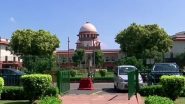La Paz, Dec 18 (AFP) Bolivian President Evo Morales is forging on in his bid to win a fourth term in next year's elections, despite mounting opposition against a move branded unconstitutional.
Morales has been in power since 2006, winning three elections already despite Bolivia's 2009 constitution, which he himself promulgated, limiting presidents to two consecutive terms in office.
However, the country's constitutional court, filled with government loyalists and having already ruled in Morales's favor by allowing him to stand for re-election in 2014, has rejected 11 appeals against his seeking a fourth term.
Strikes and protest marches led by opposition groups have failed to deter Morales, the country's first ever indigenous president.
He tried to change the constitution in 2016 to allow him to seek unlimited terms in office but narrowly lost a referendum on the subject.
However, his government rejected the results and the constitutional court backed him, saying that it was his human right to seek reelection.
He is due to stand in his own Movement for Socialism (MAS) party's primary in January after the constitutional court rejected the appeals attempting to block him from doing so.
Already the longest-serving president in Bolivia's history, Morales would remain in power for 19 years should he win next year's election and serve a fourth term from 2020-2025.
Protests have extended to hunger strikes in some of Bolivia's major cities, though.
"We're in the fifth day of a hunger strike and many people have joined," said Juan Flores, a civil leader in the Cochabamba region.
"These hunger strikes are so that the dictator respects the constitution and the laws."
Political analyst Carlos Borth told AFP, however, that there was little the opposition could do to prevent Morales standing for reelection.
"Internally there's nothing to prevent Evo Morales's candidacy," he said, adding that it was up to outside authorities, such as the Inter-American Commission on Human Rights to speak out against the president.
Writing on Twitter, Morales sent out a rallying cry.
"We're organizing politically and building together a new #Bolivia, with less poverty and greater social justice. Thanks for your support," he said.
He also mocked the hunger strike, which Flores insists will spread throughout the whole country in the following days, describing it as "a diet" that is "good for health." In each of his three successful election campaigns, Morales received more than 50 per cent of the vote.
His main challenger in the October 2019 election, former president Carlos Mesa, says the opposition's denunciation of an attack on democracy has caught the attention of ex-leaders throughout Latin America.
Last week, a group of around 20 former leaders signed an open letter to the European Union and the Organization of American States asking them to "remain vigilant and apply the preventative and effective measures that are necessary and appropriate given the rupture of constitutional and democratic law that has occurred in Bolivia under the presidency of Evo Morales."
Among those to sign the document were Bolivia's Jorge Quiroga, Oscar Arias of Costa Rica, Spain's Jose Maria Aznar, Fernando de la Rua of Argentina, Mexican Vicente Fox, Luis Alberto Lacalle of Uruguay and Colombia's Andres Pastrana. (AFP) KUN
(This is an unedited and auto-generated story from Syndicated News feed, LatestLY Staff may not have modified or edited the content body)













 Quickly
Quickly





















